Smarter prophylaxis: How RHD testing protects patients and resources
The supply of anti-D immunoglobulin, a prophylactic cornerstone of maternal care, has come under...
What if single-exon testing could simplify fetal RHD analysis, without compromising accuracy?
Devyser RHD is an IVDR-certified, single-exon, quantitative real-time PCR assay for fetal RHD genotyping from maternal plasma. Designed to identify fetal RHD status from week 10 of gestation, it enables targeted anti-D prophylaxis for RhD-negative pregnant women without anti-D alloimmunization. By analyzing cell-free fetal DNA (cffDNA) in maternal blood, Devyser RHD supports ethical, informed decision-making in prenatal care with a simplified workflow.
“The single-exon design results in high sensitivity and simple response algorithms” Professor Agneta Wikman, M.D., Ph.D., Karolinska University Hospital, Stockholm, Sweden.
Devyser RHD – Product features
Benefit from proven, highly sensitive technology to conduct accurate noninvasive screening for fetal RHD that helps expectant mothers avoid untargeted and unnecessary treatment.

Unlike multi-exon assays, which introduce analytical challenges, Devyser RHD targets a single, informative exon, delivering accurate results with fewer inconclusive results. This streamlined design supports high-throughput labs by minimizing reruns and maintaining sensitivity and specificity. Devyser RHD empowers clinical labs to simplify workflows and reduce hands-on time without sacrificing confidence in results. Over a decade of routine use of the single-exon assay has not resulted in any reported cases of alloimmunization.1
Clinically validated and IVDR-certified
Devyser RHD is certified under CE-IVDR (Risk Class D) in Europe and has been extensively used for over 12 years. More than 100,000 RHD-negative pregnant women have been tested. It is implemented in large clinical laboratories, including national screening programs. The assay demonstrated 99.99% sensitivity in peer-reviewed studies from gestation week 10.2
Devyser RHD is compatible with standard qPCR platforms and is automation-ready, supporting integration into manual and automated workflows. A single PCR reaction per sample, run in triplicate reactions, with low plasma volumes and quality control within the same test results in minimal hands-on time, further reducing complexity for lab staff and speeding up implementation and scaling.
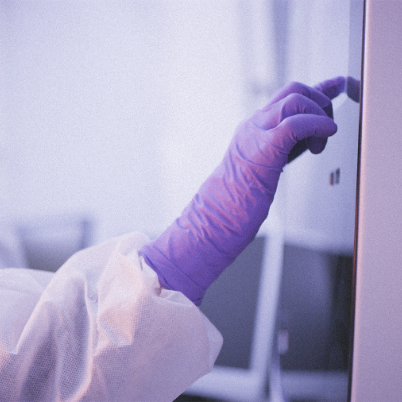
Enabling ethical, targeted use of anti-D prophylaxis
Routine administration of anti-D prophylaxis to all RhD-negative pregnancies is no longer considered best practice. Devyser RHD enables precision prophylaxis by identifying pregnancies not requiring the treatment, reducing unnecessary interventions, and conserving a limited donor-derived resource.
Targeting anti-D prophylaxis to those who benefit from it, must be preferred compared to offering it to all RhD negative women.3
Why choose Devyser RHD?
Efficient by design: Streamlined workflow and focused analysis reduce reruns and hands-on time.
Clinically trusted: Used in national screening programs and high sensitivity shown in clinical settings.
Easy to adopt: Compatible with standard qPCR platforms and adaptable to lab automation.
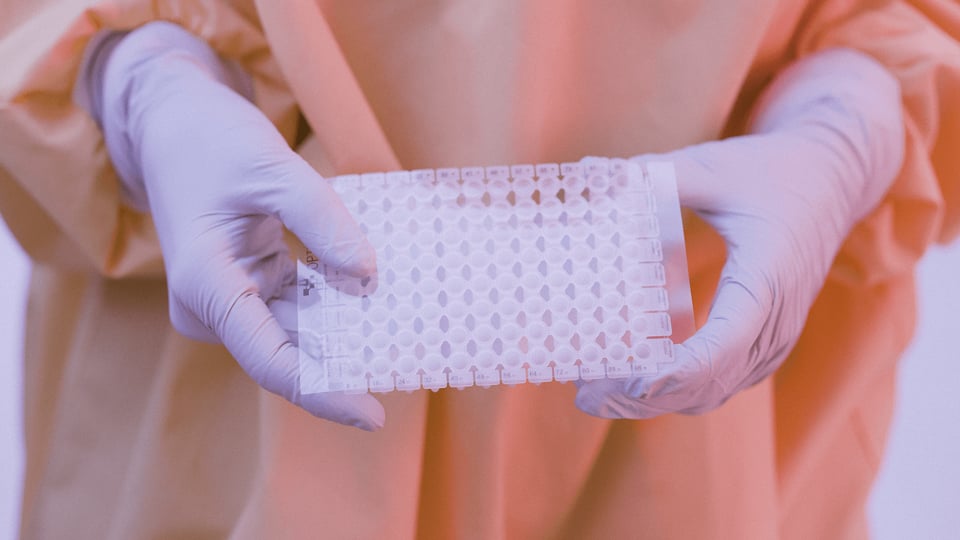
Contact us to learn more about Devyser RHD.
Instructions for use
Enter access code found in the lower right corner of the label on the kit box.
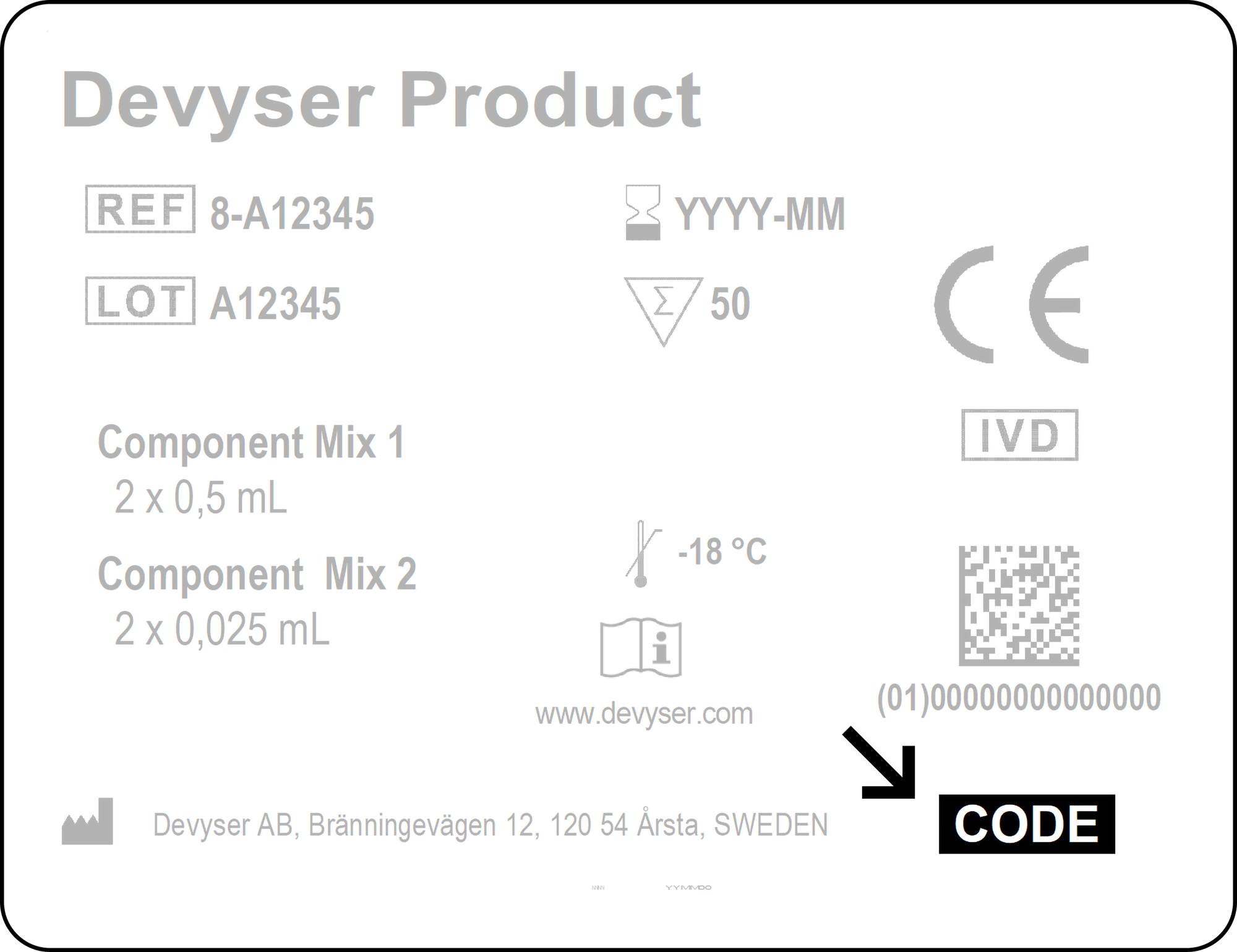
Certificates
Download a specific Batch Release Certificate (BRC) below.
Guidelines and handbooks (6)
Guide: Applied Biosystem 7500 - Devyser RHD instrument setup and analysis v2021-01-20 (English) (English)
Guide: QuantStudio 6/7 - Devyser RHD instrument setup and analysis v2021-01-20 (English)
Guide: Roche LightCycler 480 II - Devyser RHD instrument setup and analysis v2022-01-31 (English)
Product information (2)
Software settings (1)
Safety data sheets (1)
Data tables (0)
Enter access code found in the lower right corner of the label on the kit box.

Download a specific Batch Release Certificate (BRC) below.
Guide: Applied Biosystem 7500 - Devyser RHD instrument setup and analysis v2021-01-20 (English) (English)
Guide: QuantStudio 6/7 - Devyser RHD instrument setup and analysis v2021-01-20 (English)
Guide: Roche LightCycler 480 II - Devyser RHD instrument setup and analysis v2022-01-31 (English)
CE-IVDR
Devyser RHD
Detection of fetal RHD DNA from maternal plasma. Single exon analysis (exon 4).
8-R060-78
8-R060-390
Pack size: 78
Pack size: 390
IVD-CA
Devyser RHD
Detection of fetal RHD DNA from maternal plasma. Single exon analysis (exon 4).
8-A060-78-CA
8-A060-390-CA
Pack size: 78
Pack size: 390
CE-IVD
Devyser RHD
Detection of fetal RHD DNA from maternal plasma. Single exon analysis (exon 4).
8-A060-
8-A060-390
Pack size: 78
Pack size: 390
RUO
Devyser RHD
Detection of fetal RHD DNA from maternal plasma. Single exon analysis (exon 4).
8-A406-
8-A406-390
Pack size: 78
Pack size: 390
Is the test reliable throughout pregnancy?
Yes. Devyser RHD is validated for use from gestation week 10, when cffDNA concentration is typically sufficient for reliable detection. The test can also be performed later in pregnancy during the second or third trimester, commonly the standard in fetal screening programs. Devyser RHD, therefore, provides great flexibility as it is compatible with any maternal testing scheme.
What kind of sample is required?
The test uses maternal plasma, collected in cell-stabilizing blood tubes (K2-EDTA), from which cell-free fetal DNA is extracted.
Why single-exon and how accurate is Devyser RHD compared to multi-exon tests?
A single-exon design reduces assay complexity and analysis time while maintaining high sensitivity and specificity. By targeting exon 4, Devyser RHD simplifies interpretation by offering equivalent sensitivity and specificity compared to multi-exon assays. This design can reduce inconclusive results that can occur with multi-exon approaches.
Does Devyser RHD work with all populations?
What equipment is needed to run the test?
The assay runs on standard qPCR platforms and fits easily into most lab environments. The product documentation provides a complete list of compatible instruments.
How does Devyser RHD support decision-making around anti-D prophylaxis?
By accurately identifying fetal RHD status, Devyser RHD helps avoid unnecessary anti-D prophylaxis administration, ensuring prophylaxis is used only when needed. This improves patient care and ethical use of a limited resource.
Can the test be used for twin pregnancies?
Yes, this test is suitable for singleton pregnancies and twin pregnancies
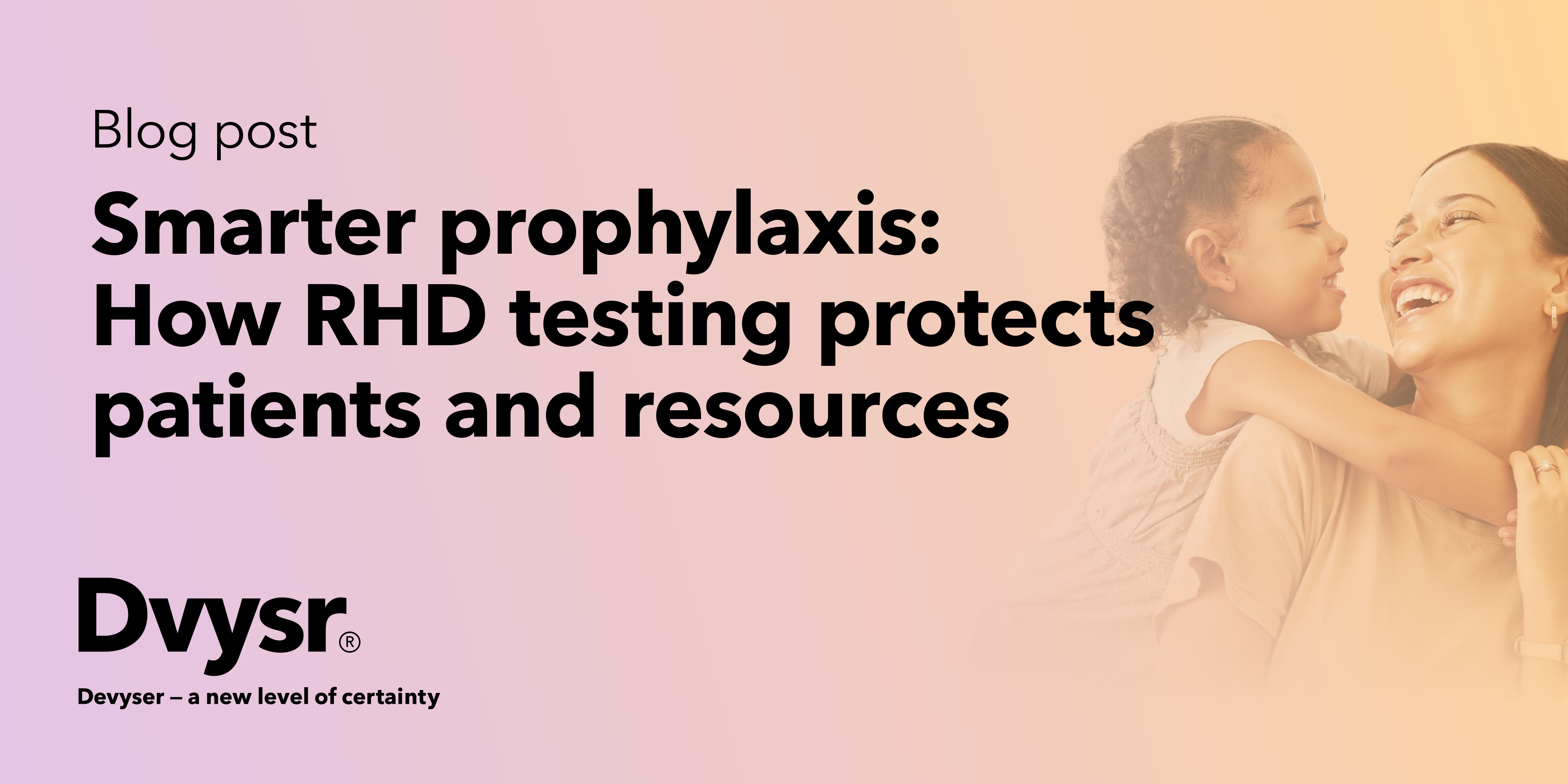
The supply of anti-D immunoglobulin, a prophylactic cornerstone of maternal care, has come under...
Read More
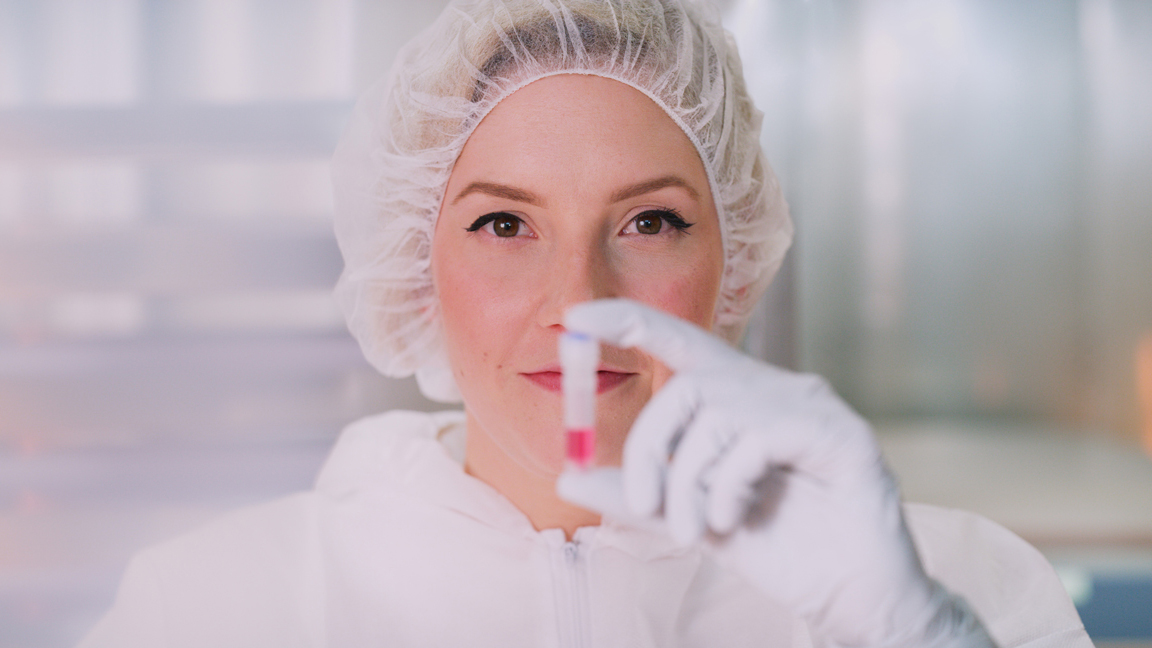
Over the past decade, there has been a wealth of research investigating the ideal approach to RHD...
Read More
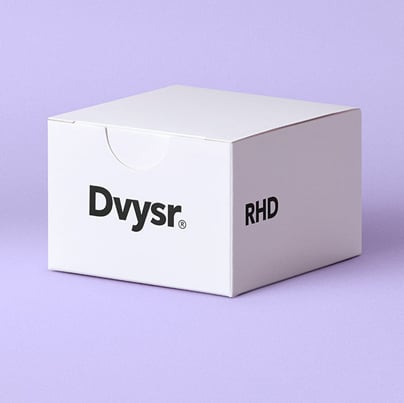
Devyser is today announcing that its product for non-invasive fetal RHD testing has been granted...
Read More

Devyser is today announcing that the company’s clinical testing laboratory in Roswell in Atlanta,...
Read More
1. Uzunel, M., Tiblad, E., Mörtberg, A., & Wikman, A. (2022). Single-exon approach to non-invasive fetal RHD screening in early pregnancy: An update after 10 years’ experience. Vox Sanguinis, 117(11), 1296–1301. https://doi.org/10.1111/VOX.13348
2. Isakson, P., & Pardi, C. (2023). Evaluation of an automated platform for non-invasive single-exon fetal RHD genotyping early in pregnancy. Blood Transfus, 21, 472–478. https://doi.org/10.2450/2023.0267-22
3. Expert review: Fetal RHD screening in clinical routine. Prof. Agneta Wikman. Devyser, 2024. Expert review: Fetal RHD screening in clinical routine. Prof. Agneta Wikman. Devyser, 2024
4. Statistics Sweden (SCB). (2024). Population in Sweden by country/region of birth, citizenship, and Swedish/foreign background, 31 December 2024